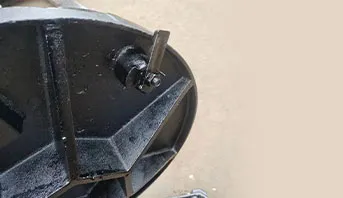
Dec . 26, 2024 06:20 Back to list
Understanding the Basics and Functions of Hot Water Boilers
Understanding Hot Water Boilers
Hot water boilers are essential appliances in residential and commercial buildings for heating water. They play a crucial role in providing heating for domestic hot water needs, space heating, and sometimes even industrial applications. This article explores the basics of hot water boilers, their types, how they work, and considerations for selecting the right one.
What is a Hot Water Boiler?
A hot water boiler is a closed vessel designed to heat water for various applications. It utilizes a heat source, which can be combustion of fuels like natural gas, propane, oil, or electricity, to raise the temperature of the water within the boiler. The heated water is then circulated through a system of pipes to radiators, heat exchangers, or other distribution systems, providing warmth to spaces and serving other needs, such as washing and bathing.
Types of Hot Water Boilers
1. Fire-Tube Boilers In fire-tube boilers, hot gases produced by combustion pass through tubes submerged in water. The heat from these gases warms the water surrounding the tubes. This design is generally simpler and is often used in smaller applications.
2. Water-Tube Boilers Water-tube boilers, on the other hand, have water flowing through tubes that are surrounded by hot combustion gases. This type is more efficient at generating steam and is commonly used in high-capacity applications or in industrial settings.
3. Combi Boilers Combination boilers or combi boilers are a compact solution that provides both heating and hot water on demand. They eliminate the need for a separate hot water tank, making them ideal for smaller homes or apartments.
4. Electric Boilers These boilers use electricity as their primary heat source. While they are less common in high-demand applications, they are often used in residential settings where available fuel sources are limited.
How Do Hot Water Boilers Work?
Hot water boilers operate based on the principles of thermodynamics. The boiler heats water until it reaches the desired temperature, at which point it is circulated through system piping. During this process, the hot water transfers its heat to the surrounding air, effectively warming the space.
what is hot water boiler

Most hot water boilers are equipped with a thermostat, which monitors the water temperature and regulates the heating process. When the water cools down to a certain set point, the thermostat signals the boiler to activate and heat the water back up.
Considerations for Selecting a Hot Water Boiler
When choosing a hot water boiler, several factors should be considered
1. Size and Capacity The size of your boiler should correspond to your heating needs. An oversized boiler may lead to energy inefficiency, while an undersized unit may struggle to provide adequate heat.
2. Fuel Type Consider the availability and cost of fuels in your area. Natural gas and propane are common choices, but electric boilers might serve better in specific circumstances.
3. Efficiency Ratings Look for boilers with high energy efficiency ratings. More efficient models may come with a higher upfront cost but can save money on energy bills over time.
4. Installation and Maintenance Proper installation is critical to the efficient operation of a hot water boiler. Additionally, regular maintenance ensures longevity and reliable performance, including routine inspections and system flushing.
5. Regulations Be aware of any local building codes or regulations regarding boiler installation and operation, which may influence your decision.
Conclusion
In conclusion, hot water boilers are vital for providing comfort and necessary hot water in homes and businesses. Understanding how they work, the different types available, and the factors influencing their selection can help consumers make informed decisions. Whether for space heating, domestic hot water, or industrial applications, selecting the right boiler improves efficiency, saves costs, and enhances overall comfort. As technology advances, modern boilers continue to evolve, providing even greater efficiencies and performance, ensuring they remain a staple in heating solutions for years to come.
-
High-Efficiency Commercial Oil Fired Steam Boiler for Industry
NewsJul.30,2025
-
High-Efficiency Biomass Fired Thermal Oil Boiler Solutions
NewsJul.30,2025
-
High Efficiency Gas Fired Thermal Oil Boiler for Industrial Heating
NewsJul.29,2025
-
High-Efficiency Gas Fired Hot Water Boiler for Sale – Reliable & Affordable
NewsJul.29,2025
-
High Efficiency Biomass Fired Hot Water Boiler for Industrial and Commercial Use
NewsJul.29,2025
-
High-Efficiency Biomass Fired Hot Water Boiler for Industrial Use
NewsJul.28,2025
Related PRODUCTS






















